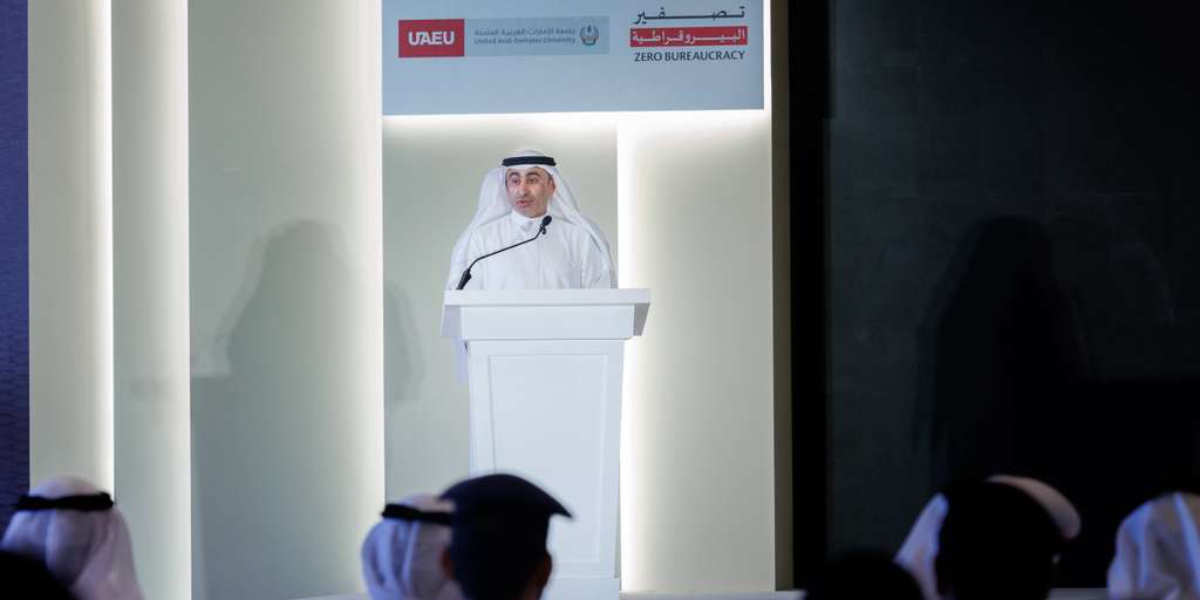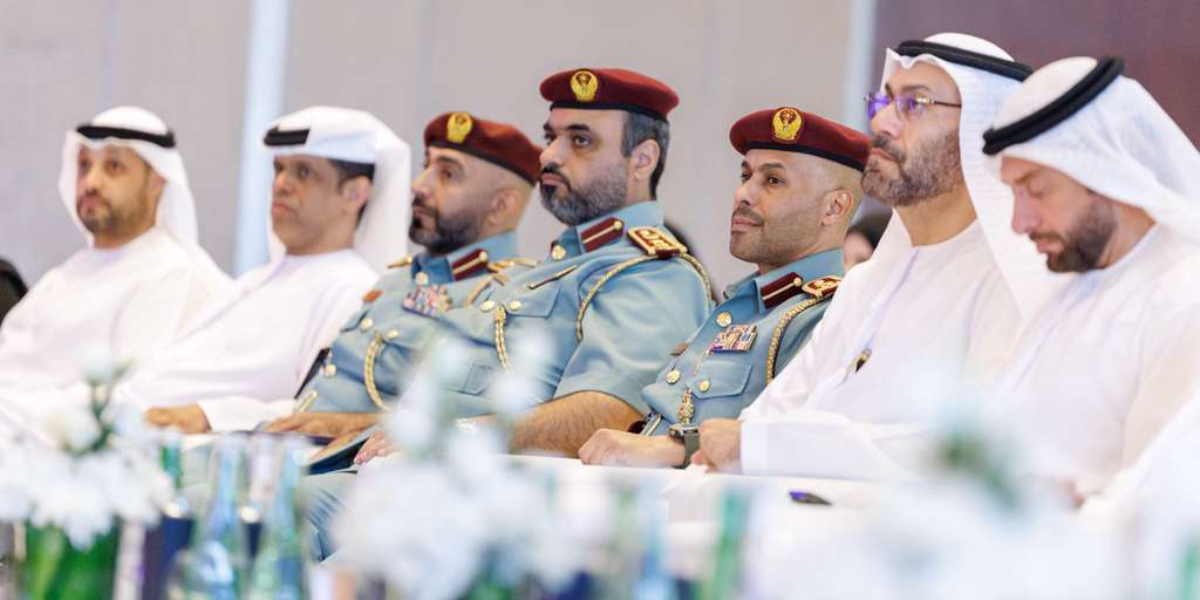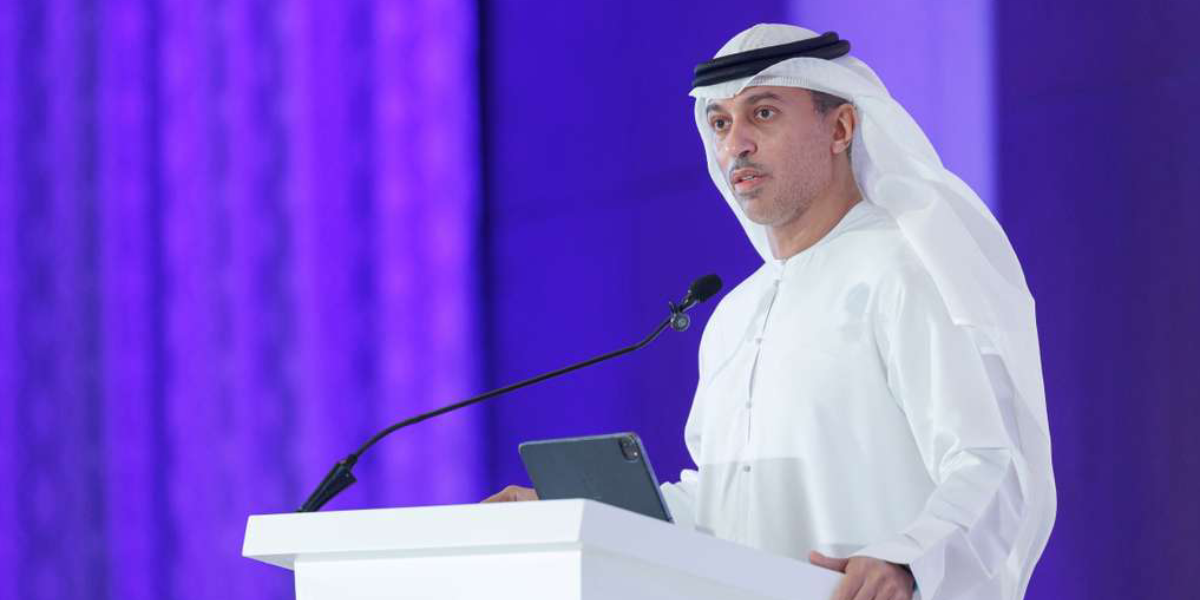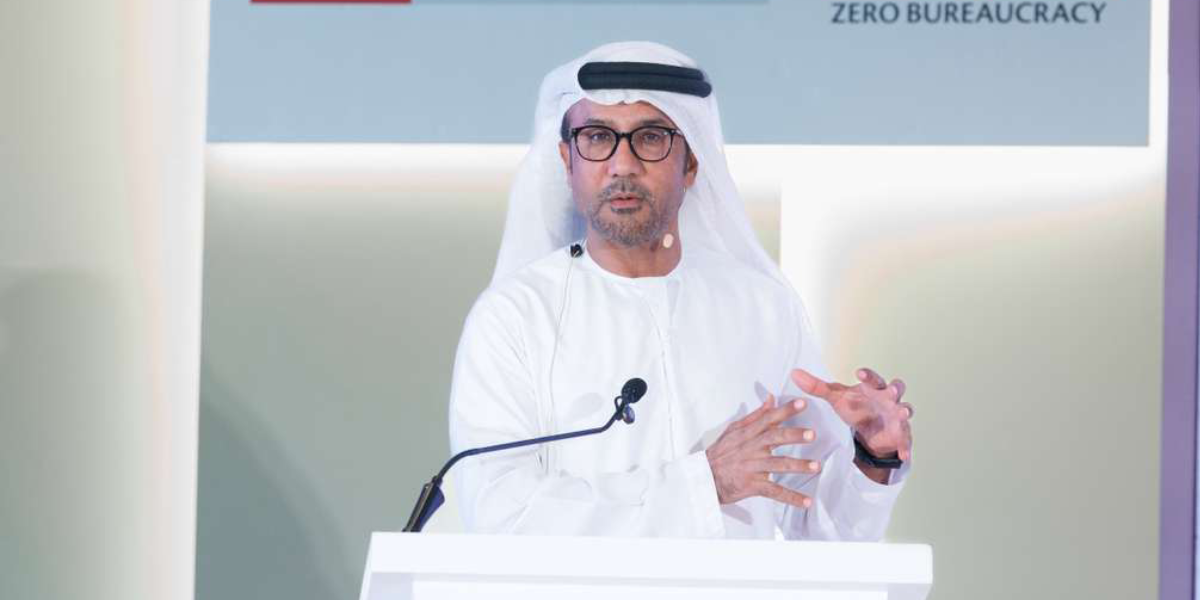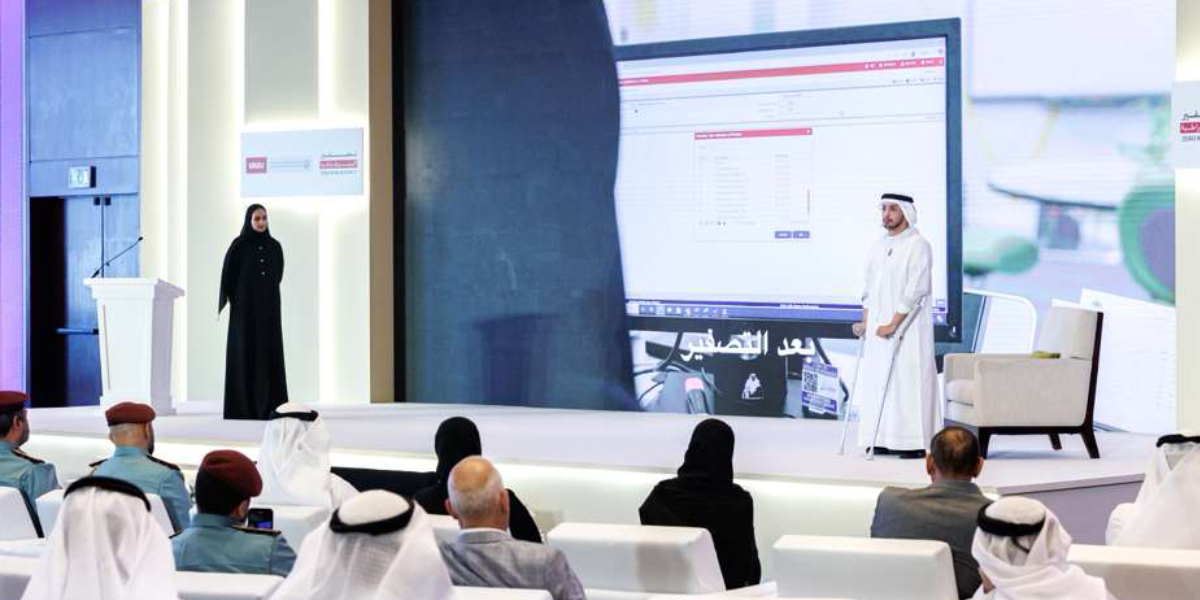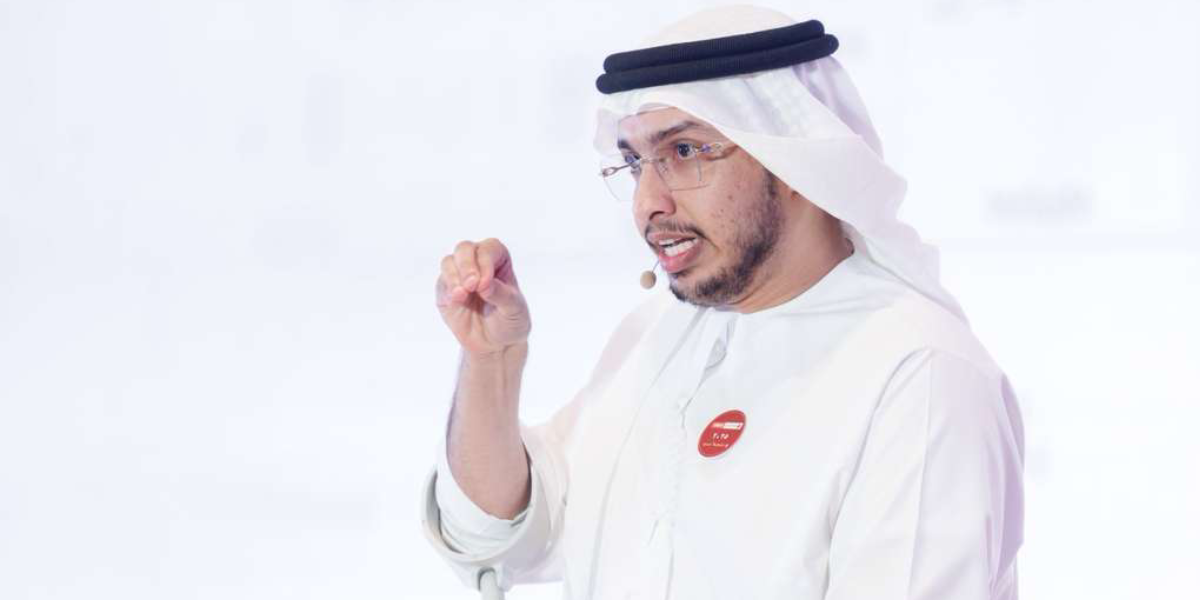UAEU Hosts the Third Meeting of the Second Phase of the “Zero Government Bureaucracy Programme”
Tue, 28 October 2025
Featuring Government Leaders, Officials, and Experts
The United Arab Emirates University (UAEU) hosted the third meeting of the second phase of the Zero Government Bureaucracy Programme, in the presence of H.E. Dr. Ahmad Belhoul Al Falasi, Minister of Sports, alongside distinguished government leaders, officials, and experts from various federal entities. The meeting was held as part of the national efforts to enhance administrative efficiency and advance institutional performance toward a more agile and proactive government.
In his opening address, H.E. Prof. Ahmed Ali Al Raeesi, Vice Chancellor of UAEU, welcomed the participants and reaffirmed that the second phase of the Zero Government Bureaucracy Programme marks a shift from developing solutions to challenges, toward building flexible, integrated work environments that anticipate and adapt to the future. He noted that UAEU actively supports this national journey by graduating future government leaders, contributing to smart government and administrative development projects, and providing applied research that drives innovation in public administration models.
His Excellency emphasized that by hosting this meeting, UAEU reaffirms its commitment to serving as a national platform for intellect, development, and institutional creativity. The university, he said, is not only a center for education and knowledge but also a hub for strategic thinking that supports government innovation, strengthens the connection between research and government needs, and provides academic and scientific solutions that empower UAE institutions to achieve their goals efficiently and flexibly.
H.E. Mohammed bin Taliah, Head of Government Services at the UAE Government, highlighted that this meeting aligns with the national vision to enhance service delivery and simplify procedures to make life easier for citizens and residents. He emphasized the government’s commitment to achieving zero bureaucracy and streamlining services, reflecting the leadership’s focus on proactive and people-centered governance.
Bin Taliah added that the Zero Bureaucracy Programme represents a pioneering national project aimed at creating simpler, faster, and more impactful government services. The second phase focuses on streamlining unnecessary procedures, expanding the use of smart applications, improving digital system efficiency around the clock, strengthening digital integration among government entities, and enhancing the customer’s digital experience. He further outlined that the key directions of the second phase include continuing to eliminate unnecessary government procedures, removing duplication between entities, eliminating all unnecessary burdens, requirements, and conditions, achieving elimination of digital bureaucracy and electronic complexities, modernizing digital systems, and effectively adopting artificial intelligence.
Zero Bureaucracy Dialogues
The meeting featured several presentations from participating federal entities, showcasing innovative approaches to government performance and institutional development. Shamma Al-Wahaibi from the Zero Government Bureaucracy Programme Team – Ministry of Cabinet Affairs, Prime Minister’s Office – presented the media plan for the programme. H.E. Ghanim Mubarak Al-Hajeri, Undersecretary of the Ministry of Sports, reviewed the ministry’s experience and achievements within the second phase.
Nawaf Al Marzooqi, Head of the Tax Registration Department at the Federal Tax Authority, delivered a presentation titled “Innovative Business Models,” highlighting the Authority’s leading practices in this area. Mohammed Al Omran from the Telecommunications and Digital Government Regulatory Authority presented the “Digital Customer Journey Quality Measurement System” platform, followed by an introduction to the “TAMM” platform by Khalfan Al Jasmi, Director of Business Development and Service Products, which serves as a model for digital integration in government services.
The meeting concluded with an interactive dialogue session with UAEU students, including graduates Khatoun Al Hattawi and Farhan Al Ahbabi, both people of determination, who shared their perspectives on promoting a culture of government innovation and the vital role of persons with disabilities and university graduates in enhancing institutional performance and community partnership in government work.
Do you find this content helpful?
عفوا
لايوجد محتوى عربي لهذه الصفحة
عفوا
يوجد مشكلة في الصفحة التي تحاول الوصول إليها


